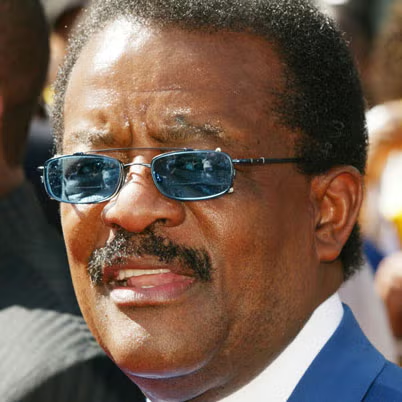
Table of Contents
Who Was Johnnie Cochran?
Johnnie Cochran emerged as a prominent attorney specializing in high-profile police brutality cases within the African American community. He represented numerous notable clients, including pop icon Michael Jackson, and gained widespread recognition as the lead attorney for O. J. Simpson during the highly publicized murder trial in 1995. Cochran’s involvement in this contentious case propelled him into the national spotlight, where he became a celebrity in his own right, making appearances on television and authoring several memoirs.
Education and Early Career
Johnnie L. Cochran Jr. was born on October 2, 1937, in Shreveport, Louisiana, to Hattie and Johnnie L. Cochran Sr. The family relocated to California in 1943, where Cochran thrived academically in a progressively integrated environment. In 1959, he earned his bachelor’s degree from the University of California, Los Angeles, before attending Loyola Marymount University Law School, where he graduated in 1962. After passing the bar exam, Cochran began his legal career as a deputy criminal prosecutor in Los Angeles. By the mid-1960s, he transitioned to private practice, partnering with Gerald Lenoir, and later established his own firm, Cochran, Atkins & Evans.
Cases Involving Police Misconduct
During the 1960s, Johnnie Cochran began establishing a reputation for championing cases that involved questionable police conduct toward African Americans. One notable case occurred in 1966, when Leonard Deadwyler, a Black motorist, was tragically killed by police officer Jerold Bova while trying to transport his pregnant wife to the hospital. Cochran filed a civil suit on behalf of Deadwyler’s family; although the case did not result in a favorable outcome, it ignited Cochran’s passion for advocating against police abuse. In the early 1980s, he successfully oversaw a settlement for the family of Ron Settles, an African American football player who died under suspicious circumstances while in police custody. A decade later, Cochran achieved a landmark court award for a 13-year-old victim of sexual abuse by an officer.
In the early 1970s, Cochran defended Geronimo Pratt, a former Black Panther wrongfully accused of murder. Pratt was initially convicted and imprisoned, but Cochran tirelessly argued that the authorities had unjustly targeted him, ultimately leading to a retrial. Pratt’s conviction was overturned after more than twenty years, and Cochran also managed a wrongful imprisonment lawsuit on his behalf. In 1978, Cochran temporarily transitioned to the public sector by joining the Los Angeles County District Attorney’s Office, although he later returned to private practice.
O.J. Simpson Trial
Cochran’s illustrious career included representation of various high-profile clients, including actor Todd Bridges, who faced attempted murder charges, and pop icon Michael Jackson, for whom Cochran negotiated an out-of-court settlement concerning child molestation allegations.
In 1994, Cochran became a key member of the so-called “dream team” of lawyers defending athlete and actor O.J. Simpson against charges of murdering his wife, Nicole Brown Simpson, and her friend, Ron Goldman. Dubbed the “trial of the century,” the proceedings began in January 1995 and garnered unprecedented global media attention.
Demonstrating his distinctive courtroom style, Cochran emerged as the team’s leader amidst rising tensions among the attorneys. A pivotal moment in the trial occurred when Simpson attempted to try on blood-stained gloves that the prosecution alleged were used in the murders. Cochran famously articulated the phrase, “If it doesn’t fit, you must acquit.” The defense team, under the guidance of F. Lee Bailey, a private investigator, also uncovered racist remarks made by Detective Mark Fuhrman regarding African Americans. Cochran’s controversial closing arguments drew a parallel between Fuhrman’s ideology and that of Adolf Hitler. Ultimately, Simpson was acquitted of the murder charges but later faced civil litigation, resulting in substantial damages awarded to the Brown and Goldman families.
Controversies, Later Work, and Death
The extensive media coverage surrounding the Simpson trial catapulted Cochran into celebrity status, leading to a reported $2.5 million advance for his memoirs. However, his personal life became a subject of scrutiny when his first wife, Barbara Cochran Berry, published her memoir, Life After Johnnie Cochran: Why I Left the Sweetest Talking, Most Successful Black Lawyer in L.A., in which she accused him of abusive behavior. Cochran’s longtime mistress, Patricia Sikora, also publicly criticized him.
Cochran authored several books, including Journey to Justice (1996) and A Lawyer’s Life (2002). He made appearances on Court TV’s Inside America’s Courts and participated in various television programs, such as Jimmy Kimmel Live, The Chris Rock Show, and The Roseanne Show, in addition to appearing in Spike Lee’s film Bamboozled (2000). Throughout the early 2000s, Cochran continued to take on significant cases, including representing Abner Louima, who was tortured in New York City police custody, and music mogul Sean “Puffy” Combs, as well as engaging in anti-trust litigation against NASCAR.
In 2004, Cochran’s associates revealed that he was battling an undisclosed illness. He succumbed to a brain tumor on March 29, 2005, at the age of 67.
